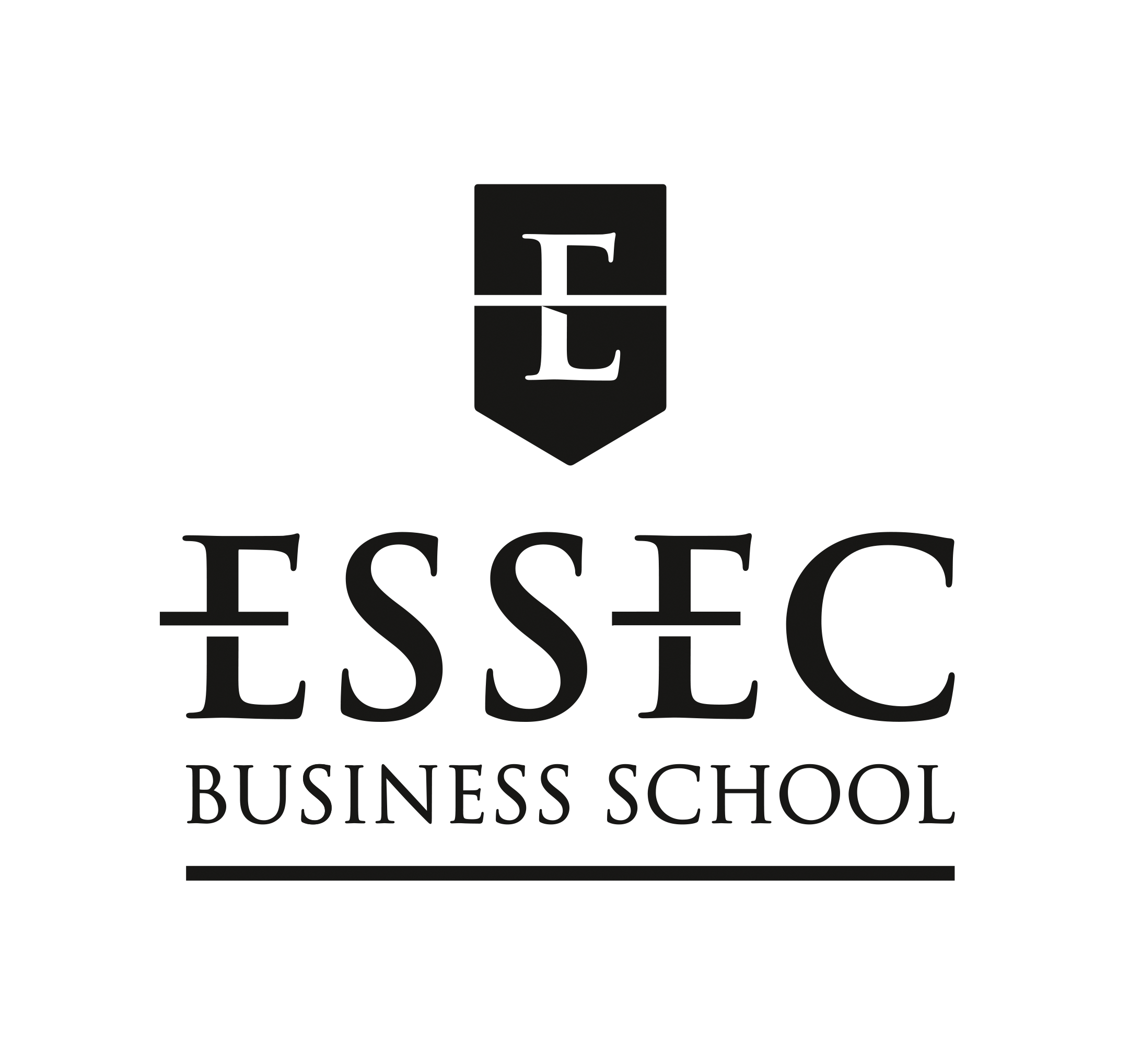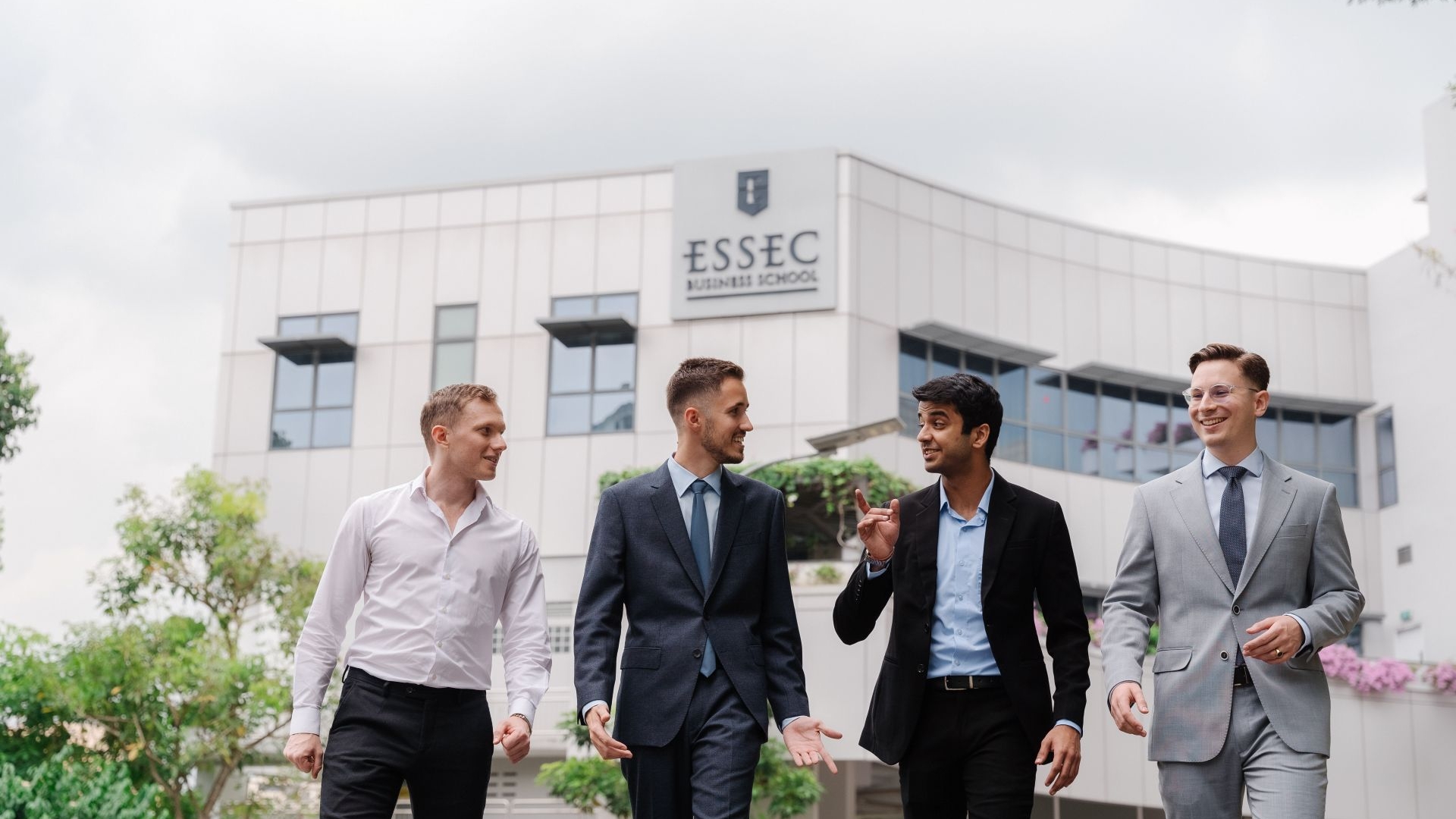For many junior executives, pursuing further education is a sensible next step to advance their careers.
While a Master in Business Administration (MBA) might seem the only viable option, especially for people looking to pivot to other sectors or markets, it’s worth noting that other opportunities equip you with equivalent opportunities—often at a lower price tag.
ESSEC Asia-Pacific’s Master in Strategy & Management of International Business (SMIB) is one such program.
As its name suggests, it strongly emphasizes management and strategy, enabling graduates to develop the versatility to pivot and add value, no matter their sector of choice.
Despite the pandemic, 100 percent of graduates found employment within six months of graduation, with 73 percent securing work before the term ended.
So why exactly is this the case?
The Versatility of Skills in Strategy and Management
Mainly because the SMIB program exposes students to a broad range of industries.
Keerthana Sreekanth Rao from the Class of 2020 says this is done through the cohort’s diversity. “The diversity of the other students in my cohort and the kind of experiences they brought to the table played a big part in influencing the way I wanted to design my career,” the Business Intelligence Analyst at Phillips explains, noting that for someone like her, who came with a specialized healthcare background, “the course felt like a good introduction to the business world, without too much emphasis on any one sector.”
Students are also challenged to strategize and problem-solve for different industries through classroom projects and industry projects like the Company Mission and the Asian Strategy Challenge (ASC), which require students to work closely with companies to solve real-world problems.
“I was constantly placed in situations where I had to work on projects unfamiliar to me—from doing a market research report for a sports retailer to supply chain work for the fragrances and cosmetics industry,” Ma. Patricia Sol Gamilla, from the class of 2021, shares. This, she notes, put her in good stead when she eventually joined the world of consulting.
The Signature French Business School Approach
There is also value in attending a French business school. After all, a look at the QS Top Universities rankings for Management masters reveals that three out of the top five in the world are from France.
Anne-Flore Maman Larraufie, Academic Director of SMIB, explains that this has to do with the signature French school emphasis on critical thinking and analytical skills. “France is anchored in philosophy and ethical principles, which is why observing, challenging, and discussing is valued—not rote learning,” she says.
This is particularly relevant because “strategy development is not like baking a cake with a preset recipe.” The need is to listen, observe, assess, and even be willing to criticize oneself in search of the best decision. Therefore, students from the SMIB program can look forward to a unique learning-by-doing, analytical approach that will serve them well when facing real-world challenges.
The Advantages of Being at the Heart of Asia
On top of receiving ESSEC’s world-class education, students also benefit from the school’s location in Singapore. Apart from being in a country where over 7,000 multinational companies operate and where many cultures convene, students are also close to Asia’s many dynamic markets and have the chance to observe firsthand the economic growth in the region.
Thanks to courses such as Geopolitics in Asia, Business Development in Asia, and Financial Markets in Asia, SMIB students have the unique leverage of understanding business strategies in the region. This is important regardless of where students choose to work after graduation, as more Asian companies continue to scale globally.
“If you want to have a career in Asia or an emerging economic country, it is relevant to come to Singapore,” Larraufie affirms. “Our case studies center around these countries, which makes you knowledgeable about an area where the economy is booming very fast.”
She notes that it also helps that the ESSEC Asia-Pacific campus is smaller and more intimate. The environment is conducive to building deep and lasting connections with diverse individuals, and having a lower staff-to-student ratio also means more personalized attention from professors and the career services team.
With these factors in mind, it is arguable that for those looking to switch into business-related roles or simply accelerate career growth, a strategy and management from a French School and in Asia can be the way forward.
RELATED POSTS
Stepping Out Of Your Comfort Zone: Why It Matters At Business School
How embracing new challenges accelerates personal and professional growth.
From Singapore to the World: Navigating Your Global Career Path
Beyond a degree, ESSEC Asia-Pacific is your launchpad for a truly global career, equipping you with a powerful international network of 71,000 alumni…
How ESSEC Asia-Pacific Builds A Sense Of Community
From orientation to cultural nights — how students feel supported and included.
Making Friends Across Cultures: Lessons From A Diverse Classroom
Stories and tips on navigating intercultural friendships at ESSEC Asia-Pacific.
Your Global Network Starts Now: Why ESSEC Friendships Matter
Beyond the classroom, discover how ESSEC Asia-Pacific cultivates a strong sense of belonging and community for international students, leading to…
How Studying In Asia Changed My Worldview
Reflections from an ESSEC Asia-Pacific international student.








